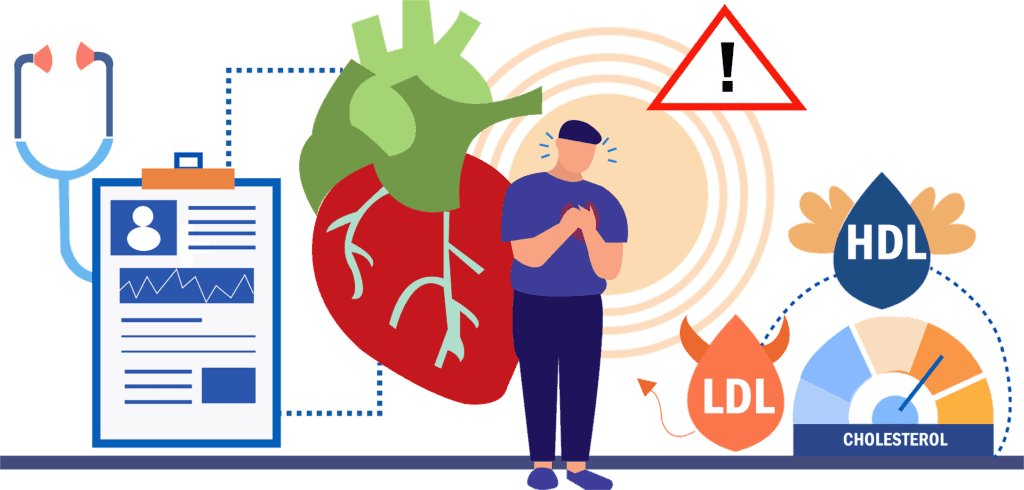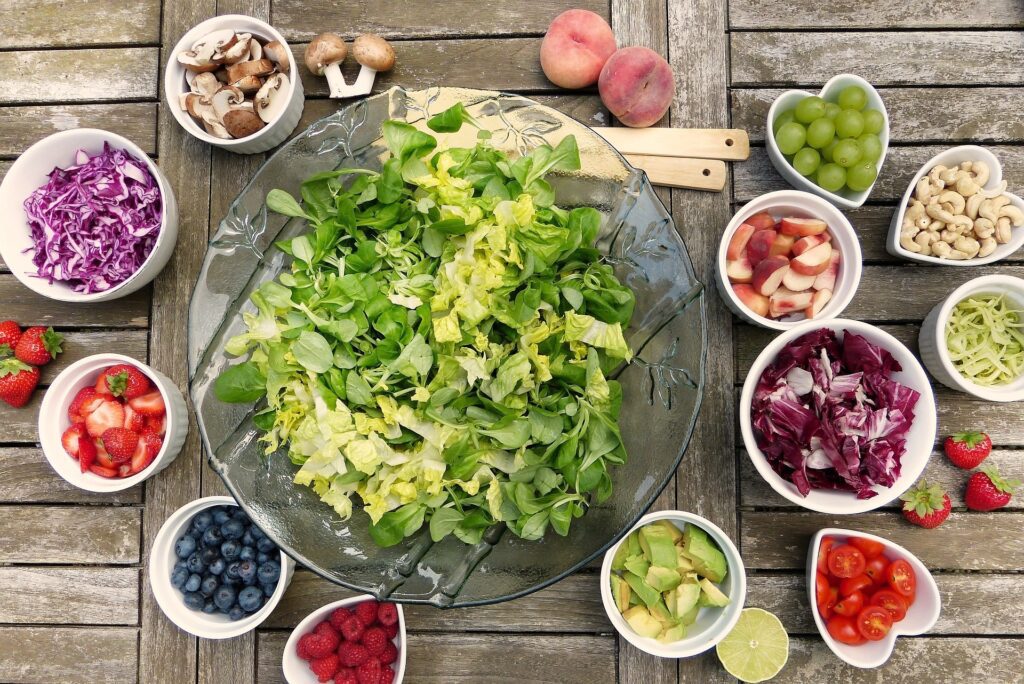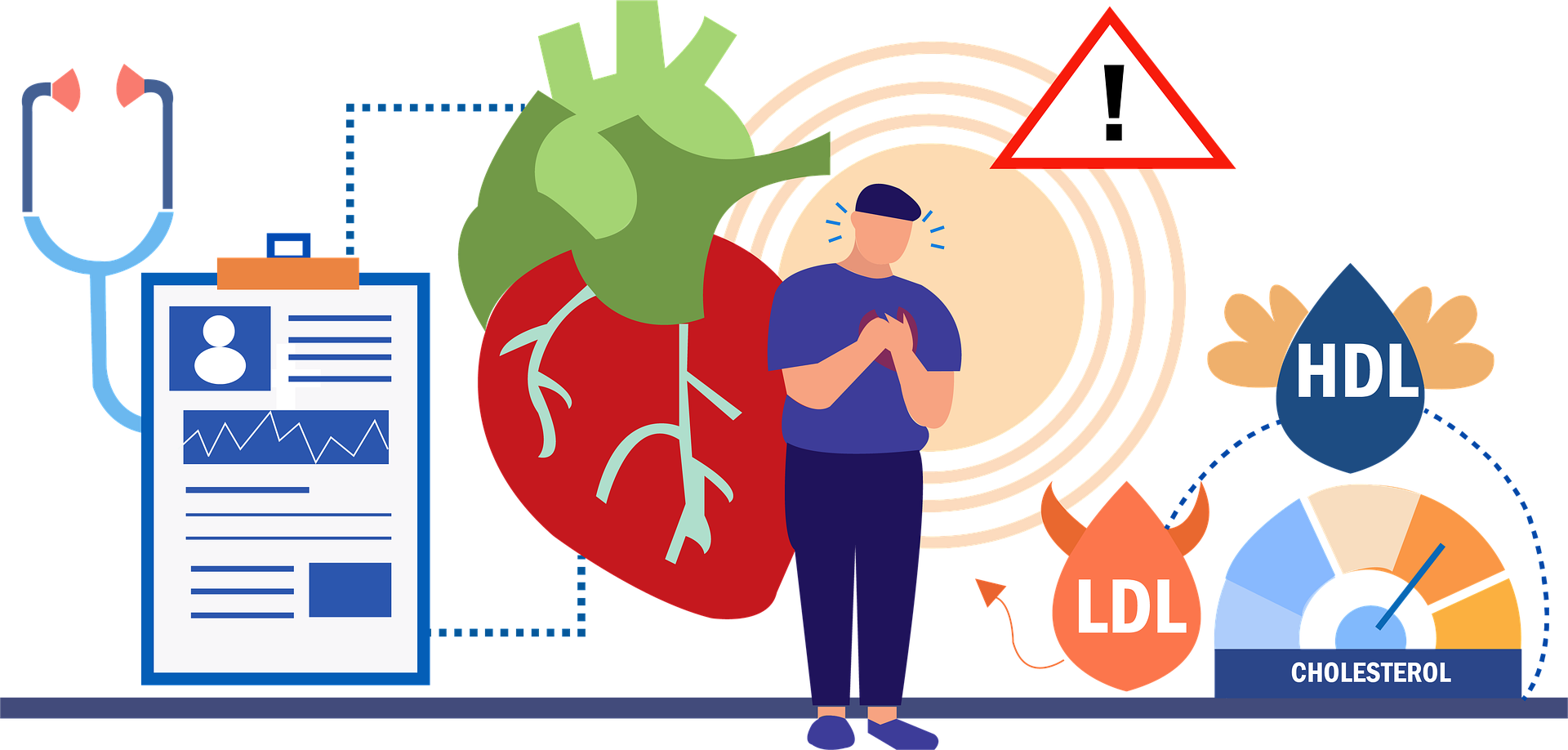
Lower cholesterol and protect your heart health? The good news is that there are several natural ways to reduce your cholesterol and reduce your risk of cardiovascular disease and stroke. This article will discuss effective methods for reducing cholesterol levels and keeping your heart healthy.
Learning about cholesterol
Cholesterol is a waxy, fat-like molecule present in the blood that plays an important role in maintaining health. Cholesterol is a fatty substance that may be found in the liver and in foods including meat, dairy, and eggs. Cholesterol is essential for the development and maintenance of cell membranes, the synthesis of hormones including estrogen and testosterone, and the breakdown of dietary lipids.
However, excessive cholesterol may increase the risk of cardiovascular disease, stroke, and other long-term conditions. Changing your diet, getting regular exercise, and taking your medicine as directed can help you keep your cholesterol levels where they should be.
Low-density lipoprotein (LDL) and high-density lipoprotein (HDL) are the two primary forms of cholesterol.
Because it may accumulate on the artery walls and cause plaques to develop, LDL cholesterol is commonly referred to as “bad” cholesterol. This is because high levels of LDL cholesterol in the blood are associated with an increased risk of cardiovascular disease and stroke. For this reason, medical professionals stress the need to maintain low levels of LDL.
HDL cholesterol, on the other hand, is considered “good” since it aids in clearing the circulation of LDL by transporting it back to the liver. Doctors advise maintaining healthy HDL levels for this reason.
Triglycerides are a third form of cholesterol that exists alongside LDL and HDL. Fat cells in the body contain a form of fat called triglycerides, which may be broken down and utilized for energy. However, elevated triglycerides have been linked to cardiovascular disease and other health issues. In order to keep your heart healthy, it’s vital to have all three forms of cholesterol in the normal range.
Know your numbers
A blood test is needed to find out your cholesterol levels. Total cholesterol, good (high-density lipoprotein) and bad (low-density lipoprotein) cholesterol, and triglyceride values will all be reported.
Listed below are the various cholesterol levels:
Blood lipids:
Below 200 mg/dL is optimal.
Between 200 and 239 mg/dL is considered high.
Blood glucose levels over 240
Cholesterol in the form of low-density lipoprotein (LDL):
Under 100 mg/dL is ideal.
Low-to-moderate: 100-129 mg/dL
High for a healthy adult: 130–159 mg/dL
Severe: 20 mg/dL or above
In the extreme range, above 190 mg/dL
Cholesterol carried by HDL (high-density lipoprotein)
Low: 40 mg/dL or less
Ideal range (mg/dL): 40–59
Extremely high: 90 mg/dL or more
Triglycerides:
Below 150 mg/dL is considered normal.
Between 150 and 199 mg/dL is considered high.
Severe: 50–199 mg/dL
Extremely high: 500 mg/dL or above
Keep in mind that cholesterol levels might change with age, gender, and other variables, including genetics and lifestyle. Cholesterol levels should be monitored and discussed often with a healthcare physician.
The best way to reduce LDL cholesterol
Changing your food and way of life may have a significant impact on your cholesterol levels over time. Here are some natural strategies for bringing down LDL cholesterol levels:

1. Follow a heart-healthy eating plan.
Cholesterol levels may be reduced by eating a healthy diet. Your diet should mostly consist of fresh produce, whole grains, and lean proteins. Saturated and trans fats are bad for you, so stay away from fatty meals like fried foods, processed foods, and fatty meats.
2.Incorporate regular physical activity into your routine.
Keeping up with a regular exercise routine is crucial for optimal health and cholesterol control. On most days of the week, you should try to complete at least 30 minutes of moderate-intensity activity, including brisk walking or cycling.
3.Stop smoking
Tobacco use is associated with an increased risk of cardiovascular disease and stroke, in addition to the obvious damage to the lungs. Quitting smoking may help decrease cholesterol levels and the risk of certain diseases.
4.Slim down
High cholesterol levels and the possibility of cardiovascular disease and stroke are both linked to being overweight or obese. It’s been shown to be beneficial for lowering cholesterol levels and enhancing general health.
5.Try to drink less alcohol.
Excessive alcohol use is associated with elevated cholesterol levels and an increased risk of cardiovascular disease and stroke. One drink per day is the maximum safe limit for women, while two drinks per day is the maximum safe limit for men.
6.Use supplements
Take a supplement that helps decrease cholesterol naturally, such as psyllium, garlic, or fish oil. However, before beginning a new supplement regimen, it is recommended that you consult with your doctor since certain supplements may mix with your current prescriptions or have other negative effects.
8.Make use of relaxation methods.
High cholesterol levels have been linked to long-term stress. Yoga, meditation, and deep breathing are just a few stress-reduction methods that may help you feel better physically and mentally.
Cholesterol-Lowering Foods
Cholesterol levels may be lowered in a natural way with the aid of certain meals.

1.Whole grains and oats
Soluble fiber, found mostly in oats and other whole grains, has been shown to lower “bad” LDL cholesterol. Before it can be taken into the circulation, soluble fiber binds to cholesterol in the digestive tract and flushes it out. Brown rice, quinoa, and whole wheat bread are all great examples of whole grains.
2.Fruits and Vegetables
Consuming a diet rich in fruits and vegetables has been shown to reduce cholesterol. Leafy greens, berries, citrus fruits, apples, and pears are some of the best selections. These meals are especially great for dieters because of their low calorie counts.
3.Nuts and Seeds
The plant sterols, fiber, and healthy fats found in nuts and seeds all work together to reduce cholesterol. Nuts like almonds, walnuts, chia seeds, and flaxseeds are great choices. However, keep in mind that nuts and seeds are high in calories, so consume them sparingly.
4.Legumes
Beans, lentils, and chickpeas are just a few examples of legumes. These foods are great for you since they include a lot of protein and fiber. Plant sterols may also be found in legumes.
5.Avocado
Because of its high content of healthy monounsaturated and polyunsaturated fats, avocado has been shown to reduce bad LDL cholesterol. It’s also high in fiber, potassium, and other beneficial elements.
6.Olive Oil
Olive oil is an excellent choice for a fat source since it has been shown to lower “bad” LDL cholesterol. It’s rich in antioxidants, too, which may lower inflammation and protect the heart from damage.
7.Garlic
Cholesterol levels are lowered. It also has anti-inflammatory and antioxidant effects.
9. Dark chocolate
The antioxidants and flavonoids found in dark chocolate have been shown to reduce bad LDL cholesterol.
Conclusion
Although high cholesterol levels are associated with an increased risk of cardiovascular disease and stroke, such levels may be lowered with healthy lifestyle choices and medical help. Taking charge of your health and working closely with your doctor are both great ways to ensure a long and healthy life.
Eat well, exercise often, avoid tobacco products, learn to cope with stress, and take any prescribed drugs or supplements. Doing so may help you maintain a healthy weight and cholesterol level.
Web stories related to this article.
https://healthyhabitforlife.com/web-stories/heart-disease-symptoms-and-preventive-measures/
